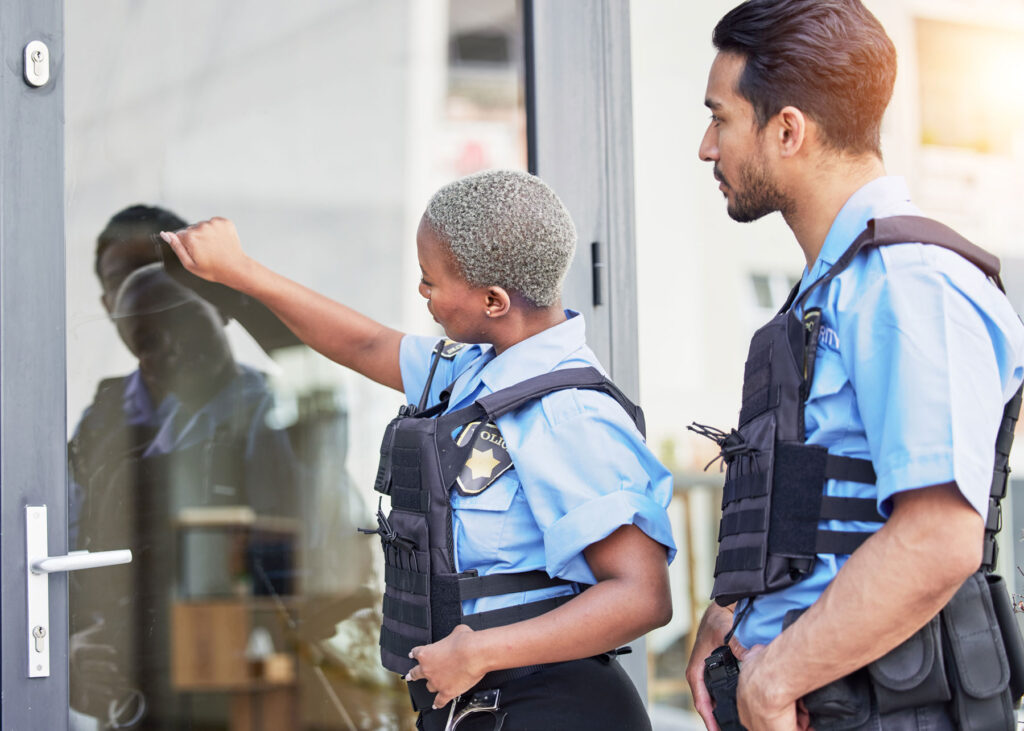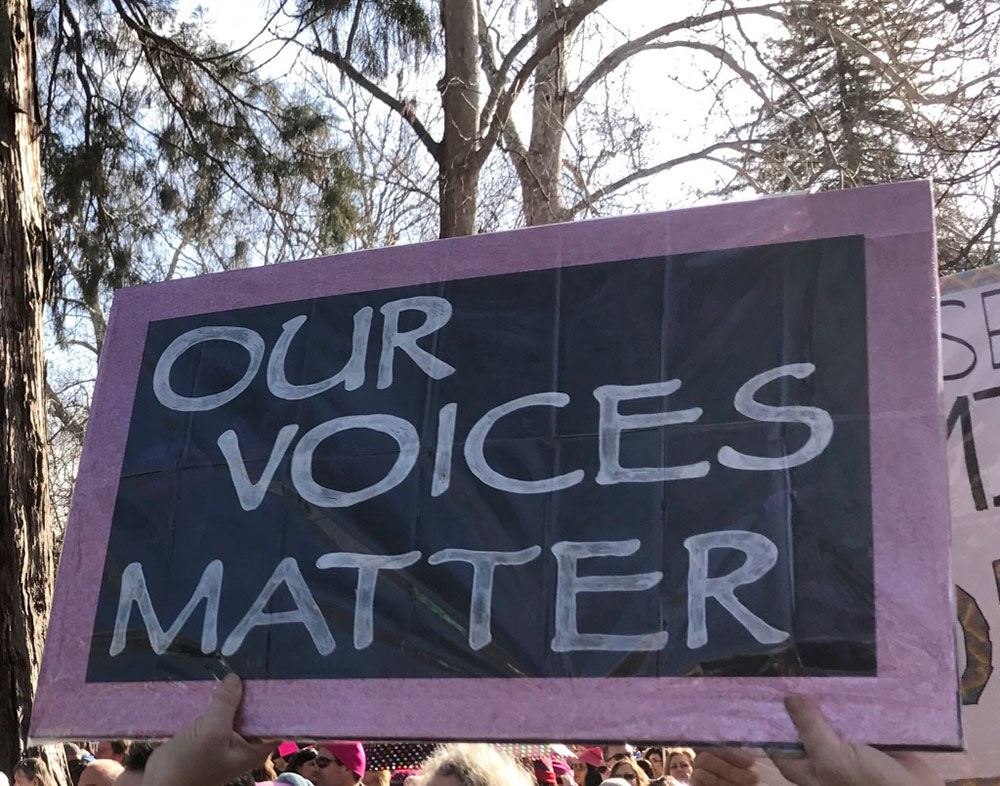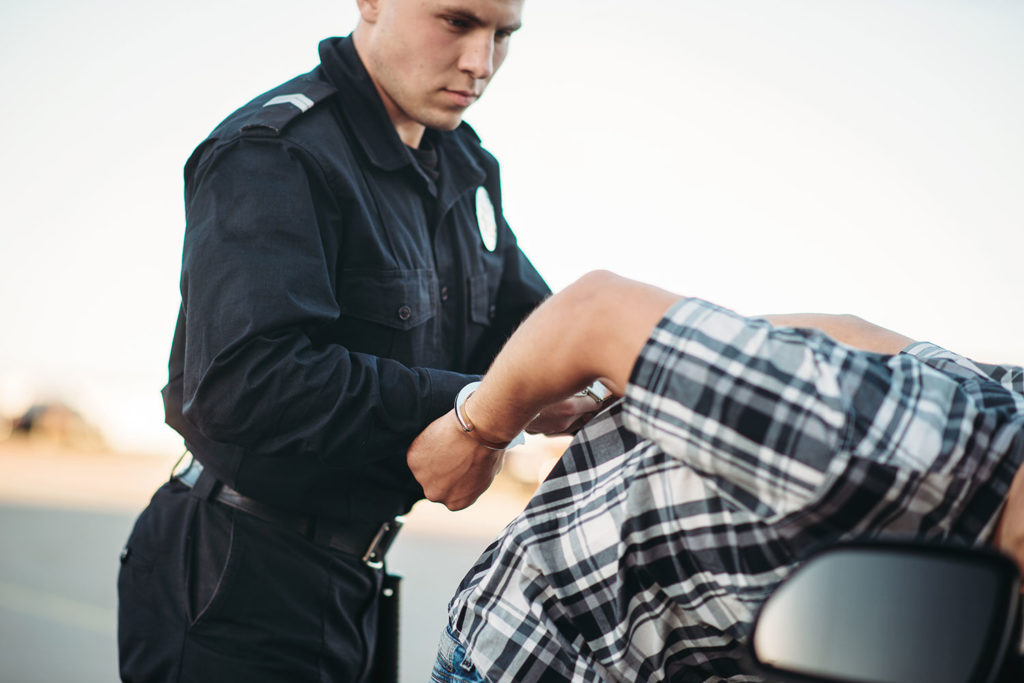Nov 18, 2025 | Civil Rights Law, Constitutional Rights, Police Misconduct

Although prisoners lose their right to go and do as they please, prisoners retain a right to safety, and there are state and federal laws that protect those rights. These laws also aim to prevent detention officers and officials from abusing or failing to protect the prisoners under their watch. Failure to protect is one of the ways prison officials can be deliberately indifferent and violate a prisoner’s Eighth Amendment rights.
What does “failure to protect” mean?
It’s common knowledge that jails and prisons are often dangerous places. And just because someone may have committed a crime does not mean they lose their basic rights to safety. Prisoner abuse typically involves a detention officer or staff member directly hurting a prisoner, often by using excessive force. Prisoner abuse can also include failing to take action to address a known risk to inmate health or safety. It can include things like denial of necessary medical care, or depriving them of food or other needs.
Failure to protect is when the detention officers and/or officials simply don’t protect the prisoners from violence or abuse despite being put on notice of a significant risk. When someone is in prison, they are at the mercy of the guards and rely on them for protection from other inmates. They have little control over their environment and are not allowed to protect or defend themselves the way they would outside of prison. Therefore, when put on notice, prison staff have a duty to take action in the face of known risks to inmate health or safety.
Prison officials may be violating the Eighth Amendment if they knew about a risk of assault by other prisoners but failed to respond, or if prison conditions or practices create an unreasonable risk of assault (for example, housing known enemies in the same pod together after one has made a threat against another).
Failure to protect includes failing to protect an inmate from:
- Themselves
- Other prisoners
- Hazardous conditions.
Failure to protect a prisoner from themselves
Prison is a harsh place, and prisoners can harm themselves just like others can harm them. Suicide remains a serious problem in jails and prisons. When an inmate expresses suicidal ideation or is otherwise at risk of harming or killing themselves, prison staff need to take that seriously. Prisoners should be provided with adequate mental health care, and prison staff should keep them on watch to be sure they don’t have access to things they might use to hurt themselves. But with any other Eighth Amendment claim, notice and deliberate indifference are required to prove a claim against specifically named individuals.
Estelle v. Gamble (1976) upholds a prisoner’s right to proper mental health care. The Supreme Court ruled that deliberate indifference to an inmate’s serious medical needs, including mental health treatment, can violate the Eighth Amendment’s prohibition against cruel and unusual punishment.
Failure to protect from other prisoners
Violence between prisoners is all too common, and the prison staff is responsible for ensuring the safety of the prisoners from each other. This may include conducting frequent searches to ensure prisoners aren’t hiding weapons in their cells. It also includes segregating prisoners who are of greater risk, such as sex offenders or high-profile inmates, and being aware of gangs and other threats. Unfortunately, many detention officers often ignore some of these risks and permit prisoners to be harmed or killed. If detention officers can be shown to be deliberately indifferent, there may be a claim.
The key case addressing a prison’s obligation to protect inmates from harm by other prisoners is Farmer v. Brennan (1994). The Supreme Court held that prison officials can be held liable if they are deliberately indifferent to known risks of harm posed by other inmates.
Failure to protect from hazardous conditions
In addition to the threat of violence, prisoners often face harm from the prison itself. Environmental conditions like excessive heat and humidity have become a problem for prisons in the southern states, particularly Texas. “With the threat of another hot summer ahead, advocates asked a federal judge to declare 100-degree-plus conditions in uncooled Texas facilities unconstitutional.” (The Texas Tribune, April 22, 2024). However, the conditions must be so poor that they represent a danger to inmates to be actionable.
Many prisons also have problems with hazardous conditions like unhealthy water, air, or living spaces. Examples include toxic coal ash at SCI Fayette, a maximum-security prison in LaBelle, Pennsylvania, or arsenic-laced water at the Wallace Pack Unit in Navasota, Texas (Earth Island Journal, America’s Toxic Prisons). Whether it’s from excessive heat or unsafe water, prison officials have the responsibility under the Constitution to protect the prisoners under their care. Failure to do so may violate the rights of prisoners under the Eighth Amendment.

Putting prison officials on notice
Generally, to pursue a claim for failure to protect, you must identify specific government actors who failed to take action to address a known risk and provide evidence that you suffered harm (including pain or other physical injury) as a result. To do that, you must ensure that correctional staff are put on notice of any pending threats that present a serious risk to your health or safety. Thus, for example, if another inmate has threatened you, you should submit a custody issue form/request through the proper channels and ask that you be housed apart while describing the threats posed. If you are housed with a member of a gang that has had past conflicts with you or any group you might be a member of, you should point out this information and why it could create a risk to you. If any of the requests are denied, you should submit written grievances describing why the decision should be overturned when evaluated by a higher-level official, while emphasizing the risks anticipated by the failure to act (i.e., explaining your fear about another inmate’s ability to find and carry out a threat made you while you share time in common/open areas, etc.).
There are typically three levels of grievance review possible, and you should take advantage of every opportunity to have an official advocate for you, while also creating a paper trail of those who may deny your requests. Each of those who review and respond could be potentially liable if they fail to take reasonable action in the face of known risks. Also, the Prison Litigation Reform Act (PLRA) requires prisoners to exhaust their administrative remedies before they can sue, which requires exhausting the grievance process.
How we can help
The Civil Rights Litigation Group is committed to protecting prisoners’ rights. Our firm specializes in civil rights cases. If you or a loved one’s rights were violated while in prison, and they suffered an injury due to correctional staff’s deliberate indifference, call us for a free consultation.
Call the Civil Rights Litigation Group at 720-515-6165.
May 9, 2025 | Civil Rights Law, Constitutional Rights, First Amendment
Protecting free speech and defending against First Amendment retaliation

The purpose of Colorado’s anti-SLAPP law
In a democratic society, the ability to voice opinions about government actions and the conduct of public officials is fundamental. However, sometimes those in power try to silence criticism through costly and intimidating lawsuits. Colorado’s anti-SLAPP law can shield those speaking out on matters of public concern.
Colorado joined the ranks of states with strong anti-SLAPP protections in 2019 when Governor Jared Polis signed House Bill 19-1324 into law. “SLAPP” stands for Strategic Lawsuit Against Public Participation. These lawsuits are often legal bullying tactics used to silence critics by threatening them with expensive litigation.
The Colorado General Assembly recognized this problem and enacted the anti-SLAPP statute, noting “that it is in the public interest to encourage continued participation in matters of public significance and that this participation should not be chilled through abuse of the judicial process.” They stated that the purpose of the law was “to encourage and safeguard the constitutional rights of persons to petition, speak freely, and otherwise participate in government to the maximum extent permitted by law and, at the same time, to protect the rights of persons to file meritorious lawsuits for demonstrable injury.” (C.R.S. § 13-20-1101)
This balancing act helps maintain both free expression and access to justice. The statute protects individuals’ rights to participate in government and speak on matters of public concern while ensuring that truly injured parties can still seek redress through the courts.
SLAPP suits have been used against journalists, environmental activists, consumer advocates, and everyday citizens, like Colorado parents who speak out on matters of public concern involving their schoolchildren. By providing anti-SLAPP protections, Colorado allows journalists to report without fear of financial consequences to their newsrooms and empowers citizens to participate in democratic discourse without fear or intimidation.
How do anti-SLAPP laws work?
Using the special motion to dismiss: A powerful tool for defendants
Colorado’s anti-SLAPP law provides a powerful tool for people who believe they face meritless lawsuits targeting their protected speech. It establishes an expedited process for courts to follow when a defendant files a motion to dismiss a lawsuit based on the fact that they were exercising their constitutional right of free speech or to petition the government.
Here is how this special motion to dismiss works:
-
Filing the motion: A defendant can file a special motion to dismiss within 63 days after being served with the lawsuit. Extensions may be granted with court permission.
-
Showing protected speech: The defendant must demonstrate that the lawsuit is based on their speech or conduct involving a matter of public concern. The law specifically protects statements made before legislative, executive, or judicial proceedings; statements made in connection with issues under consideration by governmental bodies; statements made in public forums about matters of public interest; and other forms of protected speech.
-
Automatic stay of discovery: When a defendant files this special motion, the court issues an automatic stay of discovery, pausing the expensive discovery process until the motion is resolved. This is a crucial protection that prevents plaintiffs from using the discovery process to harass defendants or rapidly drive up litigation costs.
-
Shifting the burden: Once the defendant demonstrates that the case involves protected speech, the burden shifts to the plaintiff to establish “a reasonable likelihood” of prevailing on the claim. This higher standard at an early stage of litigation provides significant protection for defendants.
-
Expedited hearing: The court should hold a hearing on the special motion to dismiss no later than 28 days after it is filed unless the court must schedule it for a later date. This ensures a speedy resolution rather than allowing a SLAPP suit to drag on indefinitely.
-
Attorney fees and costs: If the defendant prevails on the special motion to dismiss, they are entitled to recover attorney fees and costs from the plaintiff. This financial consequence serves as a deterrent against filing frivolous lawsuits intended only to silence protected speech. But if the court finds that a defendant’s special motion was frivolous or solely intended to cause unnecessary delay, it will award attorney fees and costs to the plaintiff instead.
-
Immediate appeal: The order granting or denying the special motion is immediately appealable to the Colorado Court of Appeals. This provides an additional layer of protection for both parties’ rights. (C.R.S. § 13-20-1101.)
The Colorado anti-SLAPP statute has been applied in various contexts, including a recent case before the Colorado Supreme Court examining the “public interest” parameters of the law regarding online reviews of a veterinary clinic. (Tender Care Veterinary Ctr. v. Lind-Barnett)
First Amendment retaliation claims after successful anti-SLAPP motions
An interesting legal scenario arises when a government employee sues a citizen for statements made about that employee’s official actions, and the citizen successfully defends using an anti-SLAPP motion. In such cases, the citizen might have grounds for a First Amendment retaliation claim against the government employee.
While there isn’t a Colorado precedent directly on point, the U.S. Court of Appeals for the Tenth Circuit (which includes Colorado) has provided guidance in cases involving government retaliation for protected speech. In Beedle v. Wilson, the court considered a case where a governmental entity (a public hospital) filed a defamation lawsuit against a private citizen who had criticized it.
The Tenth Circuit recognized that when a governmental entity brings a lawsuit against a citizen for criticizing government actions, First Amendment concerns are implicated. The court determined that such a lawsuit could potentially constitute retaliation that violates the First Amendment and provides grounds for a civil rights claim under law. (42 U.S.C. § 1983)
How First Amendment retaliation claims work using Colorado’s anti-SLAPP law:
-
Protected speech: The defendant’s statements about the government employee’s political or governmental actions would need to constitute protected speech under the First Amendment, which generally protects speech on matters of public concern. The Supreme Court has long held that speech on matters of public concern deserves heightened First Amendment protection, such as in N.Y. Times Co. v. Sullivan, where the court noted the “profound national commitment to the principle that debate on public issues should be uninhibited, robust, and wide-open.”
-
Adverse action: The government employee’s act of filing a lawsuit against the defendant can be considered an adverse action likely to deter a person from continuing to engage in protected speech. In Beedle, the Tenth Circuit recognized that being subjected to litigation could constitute such an adverse action.
-
Causal connection: The crucial element is demonstrating a causal connection between the defendant’s protected speech and the government employee’s retaliatory action (filing the lawsuit). A successful anti-SLAPP motion can provide evidence of this causal link, as it establishes that the lawsuit targeted protected speech.
-
Improper motive: To succeed on a First Amendment retaliation claim, the defendant must show that the government employee’s primary motive in filing the lawsuit was to retaliate against the defendant for their protected speech, rather than to genuinely seek legal redress for a legitimate harm.
In Colorado, this means that if a government employee sues a citizen for statements about the employee’s political or governmental actions, and the citizen successfully defends using Colorado’s anti-SLAPP law, the citizen may have grounds for a federal civil rights lawsuit.
Such a claim would allege that the government employee’s lawsuit constituted illegal retaliation for the exercise of First Amendment rights. If successful, the citizen could recover damages, attorney fees, and costs beyond what the anti-SLAPP statute itself provides. The Civil Rights Attorney’s Fees Awards Act authorizes courts to award reasonable attorney fees to prevailing parties in civil rights litigation.
It’s worth noting that these retaliation claims face certain legal hurdles. The citizen must prove that the government employee acted under “color of law” rather than in a purely private capacity. As the Supreme Court has held, the under-color-of-state-law element of the code excludes from its reach “merely private conduct, no matter how discriminatory or wrongful.” (Blum v. Yaretsky)
Additionally, various immunity doctrines may protect government officials in certain circumstances. Government officials performing discretionary functions are entitled to qualified immunity unless their conduct violates “clearly established statutory or constitutional rights of which a reasonable person would have known.” (Harlow v. Fitzgerald)
 Has your free speech been threatened?
Has your free speech been threatened?
When government employees misuse the legal system to silence criticism of their official actions, the combination of anti-SLAPP protections and potential First Amendment retaliation claims gives citizens powerful legal recourse. They ensure that individuals can speak truth to power without fear of retaliatory litigation designed to silence their voices.
However, while these anti-SLAPP laws shield citizens from legal intimidation tactics, you need an experienced civil rights attorney to help you fight these lawsuits. The Civil Rights Litigation Group understands the expedited process to dismiss meritless lawsuits targeting free speech and the First Amendment retaliation claims that may follow. We believe the law should protect rather than punish those who exercise their constitutional right to comment on matters of public concern. If your free speech rights have been violated, contact us today to see how Colorado’s anti-SLAPP law can protect you.
Call the Civil Rights Litigation Group at 720-515-6165.
Oct 21, 2024 | Constitutional Rights, Police Misconduct
 What are your rights when the police come to your home?
What are your rights when the police come to your home?
Whenever you encounter the police, knowing your rights is important, especially when they come to your home. Just because you are innocent of a crime doesn’t mean you can’t get in trouble. There are many places where you might encounter the police so know what they can and can’t do, and what you are allowed to do when interacting with them.
What can the police do at your home?
Police are generally allowed to go anywhere in public that other members of the public are allowed to go. This could involve stopping/driving on any roadways, making observations in public neighborhoods, or walking up to your front door to make an inquiry (often called a knock and talk). If the police knock on your door, the first thing to remember is to stay calm and treat them with respect – this goes a long way in keeping the interaction calm. Whatever reason they are there, you do not have to invite them in unless they have a warrant. Otherwise, it’s always best to just speak with them at your door and ask for their identification before doing so. If the police are simply there to ask if you witnessed a crime in the neighborhood or have seen someone like a missing child, you can choose to be helpful and let them know if you saw anything. Or you can simply tell them you have no helpful information to provide. If they do have a warrant, you have the right to request seeing it before letting them in. Be sure it is signed by a judicial officer and that it is specifically for your address. The warrant might also list specific areas they are allowed to search (or for specific items) and will have the name of the person, places, and things to be searched.
What should you do during a search of your home?
Again, remain calm and don’t escalate the situation if the police search your home. Remember that you have the right to remain silent as they will often ask you questions while searching. You do not have to answer any questions, and they can’t arrest you simply because you refuse to speak to them. You can also record what the police do during the search and take notes as long as you don’t interfere in what they are doing. Ask for each officer to identify themselves, their badge number, and give you a business card if they have one. Make note of anything they take and every room they search, as well as any damage they might cause to your home. Police are often allowed to ask you to step out of an area to be searched or, sometimes, even detain you for a period while a search is taking place. Don’t fight, just ask if you are required to as they ask, and then do so if required. You can always ask a lawyer later if the police command was justified or open to challenge. If they do end up arresting you at the end of the search, don’t resist, and remember to remain silent and ask for an attorney. If they read you your Miranda rights and you ask for an attorney, they can’t ask you any more questions without an attorney present. Even if you are innocent, it’s always best to have an attorney or a public defender present for any questioning. Remember that the police are very good at interrogating people and are allowed to lie about certain things.
What do you do if your rights are violated?
If you feel your rights have been violated during a search of your home, it’s even more important that you record all the details as they happen. Make sure you have all the information from the search, and you can file a complaint with internal affairs or a civilian complaint board (if your city has one). Beyond that, you can contact a law firm that specializes in civil rights cases regarding the police, and your rights while in your home or anywhere else. The Civil Rights Litigation Group has handled many cases against the police and can help you protect your rights. Call for a free consultation.
Call 720-515-6165 for a free consultation.
Mar 17, 2024 | Civil Rights Law, Constitutional Rights
The First Amendment of the Constitution states that “Congress shall make no law respecting an establishment of religion, or prohibiting the free exercise thereof; or abridging the freedom of speech, or of the press; or the right of the people to peacefully to assemble, and to petition the Government for a redress of grievances.” However, free speech isn’t an all-inclusive principle, meaning that there are some instances of speech and expression that the First Amendment doesn’t protect. What is protected speech?

Free speech and protected speech
One reason for continually examining free speech is that the Constitution is vague. The Supreme Court further defined free speech: “If there is a bedrock principle underlying the First Amendment, it is that the government may not prohibit the expression of an idea simply because society finds the idea itself offensive or disagreeable” (Texas v. Johnson). This language restricts the government’s ability to constrain speech, but, the limitations of speech and expression often depend on context, such as a corporate office or a school.
Free speech laws are extremely complex, and it’s critical to remember that free speech doesn’t protect things like defamation and libel, threats, false advertising, and more.
Differences between protected speech and unprotected speech
There are many exceptions to free speech that the Supreme Court has supported for some time. For example, the Court has decided that the First Amendment provides no protections for things like obscenity, child pornography, or speech that constitutes true threats or “fighting words,” which may produce a clear and present danger. The Court provides less than full protections for many other types of speech, including:
- Commercial speech
- Defamation, libel, and slander
- Speech that might be harmful to children
- Speech broadcasts on television and radio
- Public employees’ speech
At the same time, the Supreme Court, as well as many government and nonprofit agencies, have contributed to the definition of protected speech as well. As a broad rule, virtually all other types of speech are protected, but the government may be able to regulate speech in certain circumstances. The government may attempt to regulate an act of free speech (including verbal communication as well as visual, art, music, theater, dance, literature, and more) through prior restraint. Additionally, acts that normally have the fullest First Amendment protections may still be restricted due to “regulations of the time, place, and manner of expression which are content-neutral, are narrowly tailored to serve a significant government interest, and leave open ample alternative channels of communication.”
What to do if your free speech rights were violated
To better understand what constitutes protected speech and unprotected speech (and therefore, your rights in Colorado regarding free speech), here are a few examples:
-
Subversive advocacy — Individuals can express lawlessness, but there is a limit to this protection. For subversive advocacy (expression promoting lawlessness) to fall outside of First Amendment protections, it needs to be directed at producing imminent lawless action and the speech needs to be likely to produce lawless action.
-
Fighting words — Similar to the above example, speech cannot incite clear and present danger or violence. However, fighting words often need to be insults personally directed at a person and not political statements that the person would find offensive. Provocative political speech is often fully protected, but not clear and directed insults designed to start a fight or a threat.
-
True threats — True threats are defined as “statements where the speaker means to communicate a serious expression of an intent to commit an act of unlawful violence to a particular individual or group of individuals.” As such, the speaker may not need to carry out the threat, but only to intently produce fear of bodily harm or death in the victim.
-
Obscenity — Material, speech, and/or expression must meet the following three standards to be considered obscene and not protected by First Amendment laws. These three standards include:
- Whether “the average person, applying contemporary community standards”, would find that the work, taken as a whole, appeals to the prurient interest
- Whether the work depicts or describes, in a patently offensive way, sexual conduct or excretory functions specifically defined by applicable state law
- Whether the work, taken as a whole, lacks serious literary, artistic, political, or scientific value.
-
Child pornography. Plainly put, child pornography is an unprotected category of expression.
-
Commercial expression that concerns illegal activity, or commercial expression that is false or misleading — Commercial speech is only protected if it contains legal activity and it’s content is true and not misleading.
Contact the Civil Rights Litigation Group in Denver
The Civil Rights Litigation Group deals with issues regarding free speech. First Amendment and protected speech legal cases can be extremely complex, but at the same time, it is clear when someone is making true threats, producing obscene material, or producing false advertising and misleading information. Fortunately, if your right to free speech is being regulated or restricted in any way — or you’re facing adverse repercussions for your speech, and your speech doesn’t fall under the umbrella of “unprotected speech”— then call the Civil Rights Litigation Group in Denver, CO. We offer free, no-obligation consultations.
Call our law offices today at 720-515-6165.
Feb 17, 2024 | Police Misconduct, Uncategorized
 Most police officers exercise restraint when handling members of the general public, but there are times when a situation gets out of hand and citizens get hurt. The law allows the police some flexibility when dealing with or handling an uncooperative individual. Deadly or excessive force can be used if the officer feels he or she is being threatened (i.e., someone pointing a gun at them). But if physical force is unwarranted, it may be considered excessive force, and a violation of one’s civil rights.
Most police officers exercise restraint when handling members of the general public, but there are times when a situation gets out of hand and citizens get hurt. The law allows the police some flexibility when dealing with or handling an uncooperative individual. Deadly or excessive force can be used if the officer feels he or she is being threatened (i.e., someone pointing a gun at them). But if physical force is unwarranted, it may be considered excessive force, and a violation of one’s civil rights.
Is it excessive force?
The police typically have qualified immunity involving arrest so that concerns of legal action don’t interfere with their ability to do their jobs. (However, those laws have changed in Colorado and police are now required to wear cameras and don’t always have immunity.) Police are allowed to use reasonable force when handling a combative individual, but only to the point of subduing the person for arrest. Legal protections for citizens are available if force becomes excessive or unreasonable. Section 1983 of the Civil Rights Act of 1871 forbids the police to restrict an individual of their civil rights under the Fourth Amendment of the Constitution.
Excessive force, as defined, is when a police officer is aggressive, forceful, and possibly threatens bodily harm when it’s unnecessary. For instance, if someone has cooperated with the police, either at a traffic stop or during an arrest (i.e., handcuffed and compliant), physical force or a weapon wouldn’t be necessary to restrain the individual. Continuing to physically subdue the individual after he or she has complied may constitute excessive force, particularly if the end result was severe injury or death.
What do you do if you are the victim of excessive force?
If you are the victim of excessive force, don’t answer any questions that aren’t required (i.e., like your name). Don’t speak unless absolutely necessary, such as asking for an attorney. If you have injuries, request medical attention immediately. Also, request that photos be taken of your injuries and included in the report. During all of this, don’t yell, become combative, threaten to sue, or say anything else about civil rights. Use your right to remain silent, because what you say really will be used against you later.
Gather evidence and build your case
You will need to prove your case of excessive force with facts and evidence, and you need to work quickly, so that none of this is lost or possibly destroyed.
1. Immediately create a written record of the event. Document everything, including day, time, circumstances, witnesses, and anyone who was with you. Don’t worry about formatting — you’re just documenting and organizing everything, and putting together a timeline to establish facts. Once you’re in court, you will be required to tell your story, clearly and exactly. Written and coherent documentation of the events will help you remember the details of your case.
2. Gather physical evidence. Pictures, video, a police report or citation, medical records (if required), any damaged property (i.e., torn clothes or damaged shoes) and anything else that’s relevant is evidence.
a. If you were injured, take pictures of your injuries and save them in a safe place (i.e., online photo storage, not just on your phone or hard drive)
b. Take pictures of any damaged personal property, and put the items away for safe keeping until they are needed.
3. Gather witnesses’ contact information. Witnesses who can verify and validate your story are crucial. An attorney may request a signed witness statement from them detailing what they saw. You need to document these facts as quickly as possible. Get copies of any videos that witnesses may have taken of the incident.
4. Take care of yourself first. If you were denied medical care in custody, go to the hospital and get checked out. Be sure to get copies of all your medial records. If you were charged with a crime, you’ll also need to find a defense attorney and take care of it. Document everything, including time off work, legal fees and other details.
What if I witness police using excessive force against another individual?
If you are a witness to police using excessive force, immediately document what you see, in as much detail as you can. Write down the time, date, place, and names if you can get them, along with any other relevant details you can remember. If you can take pictures or video, do so, and save them somewhere. Recalling the incident and going over it helps you remember specific details. You may be called upon to give testimony later, and a written account will go a long way in helping you to remember the details correctly.
Protect your civil rights in Denver
What can you do if you’re the victim of excessive force? You need an attorney who is knowledgeable about the laws and how they apply to the police. The Civil Rights Litigation Group has handled many of these kinds of cases and can help you. Contact the Civil Rights Litigation Group at (720) 515-6165 today for a free consultation.
Call us at at (720) 515-6165
Related posts:
Police accountability improving in Colorado
Record the police and protect your rights





 Has your free speech been threatened?
Has your free speech been threatened? What are your rights when the police come to your home?
What are your rights when the police come to your home?
 Most police officers exercise restraint when handling members of the general public, but there are times when a situation gets out of hand and citizens get hurt. The law allows the police some flexibility when dealing with or handling an uncooperative individual. Deadly or excessive force can be used if the officer feels he or she is being threatened (i.e., someone pointing a gun at them). But if physical force is unwarranted, it may be considered excessive force, and a violation of one’s civil rights.
Most police officers exercise restraint when handling members of the general public, but there are times when a situation gets out of hand and citizens get hurt. The law allows the police some flexibility when dealing with or handling an uncooperative individual. Deadly or excessive force can be used if the officer feels he or she is being threatened (i.e., someone pointing a gun at them). But if physical force is unwarranted, it may be considered excessive force, and a violation of one’s civil rights.